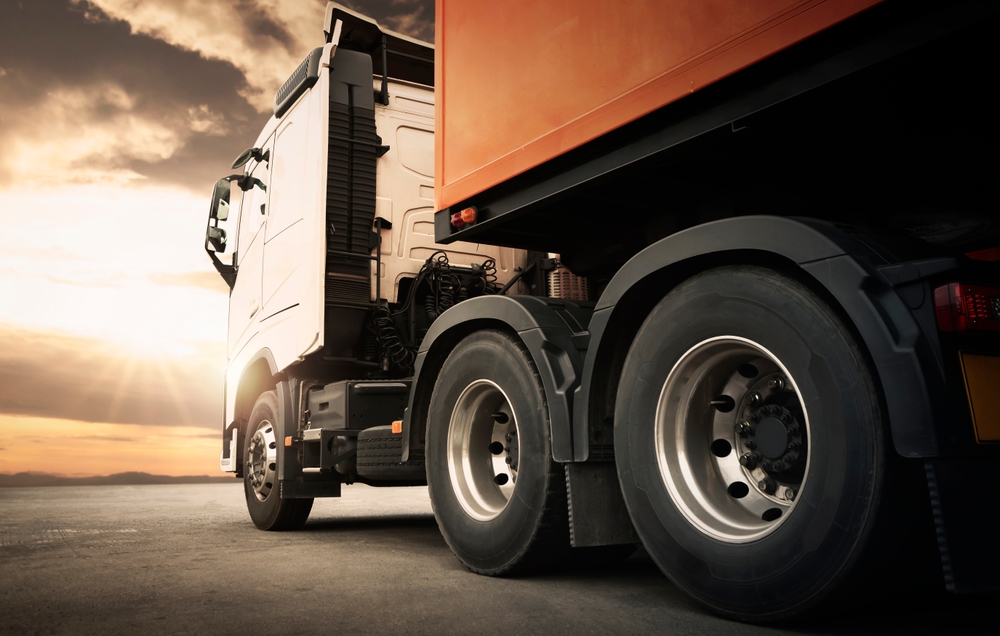
When it comes to transporting goods efficiently and safely, commercial trailers play a crucial role. They are an essential part of the trucking industry, providing the means to move a wide range of products from one location to another. Understanding the different types of commercial trailers can help businesses choose the right one for their specific needs. In this article, we will explore the most popular types of commercial trailers, their features, and their applications.
Types of Commercial Trailers
Commercial trailers come in various shapes and sizes, each designed to meet different transportation needs. Here are some of the most popular types:
1. Dry Van Trailers
Dry van trailers are perhaps the most common type of commercial trailer. They are enclosed trailers that provide protection from weather conditions and theft. These trailers are used to transport a wide range of products, from electronics to clothing.
Features
- Enclosed, solid walls
- Rear doors that swing open
- Typically used for non-perishable goods
Applications
- Retail shipments
- General cargo
- Electronics and furniture
2. Refrigerated Trailers (Reefers)
Refrigerated trailers, commonly known as reefers, are designed to transport perishable goods that require temperature control. These trailers are equipped with a refrigeration unit that maintains a constant temperature to ensure that the cargo remains fresh.
Features
- Built-in refrigeration unit
- Insulated walls to maintain temperature
- Temperature monitoring systems
Applications
- Food and beverages
- Pharmaceuticals
- Floral shipments
3. Flatbed Trailers
Flatbed trailers are characterized by their open, flat platform with no sides or roof. This design makes them ideal for transporting large or oddly shaped items that don’t fit well in enclosed trailers.
Features
- Flat, open surface
- Often equipped with tie-down points
- No sides or roof
Applications
- Construction materials
- Machinery and equipment
- Large or bulky items
4. Step Deck Trailers
Step deck trailers, also known as drop deck trailers, have a lower deck in the rear and a higher deck in the front. This design allows for the transport of taller cargo that wouldn’t fit in a standard flatbed trailer.
Features
- Two levels of deck height
- Lower rear deck for taller cargo
- Ramps for easy loading and unloading
Applications
- Heavy machinery
- Construction equipment
- Large, tall items
5. Lowboy Trailers
Lowboy trailers are similar to step deck trailers but with a more pronounced drop in height. This design is ideal for transporting extremely heavy and tall equipment, as it provides a lower center of gravity.
Features
- Extremely low deck height
- Designed for heavy and tall cargo
- Often equipped with detachable gooseneck
Applications
- Construction equipment
- Oversized loads
- Heavy machinery
6. Car Haulers
Car haulers are specialized trailers designed to transport vehicles. They come in various configurations, including open and enclosed types.
Features
- Customizable racks and tie-downs
- Enclosed or open designs
- Adjustable for different vehicle sizes
Applications
- Automotive transport
- Dealerships and auctions
- Classic and luxury cars
7. Tank Trailers
Tank trailers are used to transport liquids, including chemicals, fuels, and other bulk liquids. They are designed with a cylindrical tank mounted on a trailer chassis.
Features
- Cylindrical tank for liquid cargo
- Equipped with safety valves and seals
- Often insulated for temperature-sensitive liquids
Applications
- Chemical and fuel transport
- Food-grade liquids
- Water and other bulk liquids
8. Dump Trailers
Dump trailers are designed for hauling loose materials such as gravel, sand, and construction debris. They have a hydraulic lift system that allows the trailer bed to tilt and dump its contents.
Features
- Hydraulic lift system
- Open bed for loose materials
- Durable construction
Applications
- Construction sites
- Landscaping projects
- Demolition and debris removal
Choosing the Right Trailer for Your Needs
Selecting the appropriate trailer type depends on various factors, including the nature of the cargo, transportation distance, and specific handling requirements. Here are some tips to help you choose the right trailer:
- Consider the Cargo: Identify the type of goods you need to transport. For example, if you’re dealing with perishable items, a refrigerated trailer would be necessary. For large, bulky items, a flatbed or step deck trailer might be more suitable.
- Evaluate Handling Requirements: Determine if your cargo requires special handling, such as temperature control or secure loading. This will influence whether you need a reefer, a lowboy, or a car hauler.
- Assess Weight and Size: Ensure that the trailer you choose can accommodate the size and weight of your cargo. Overloading a trailer can lead to safety issues and legal complications.
- Check Local Regulations: Be aware of any regulations or restrictions related to trailer use in your area, including size, weight limits, and licensing requirements.
- Consider Future Needs: Think about your long-term transportation needs. Investing in a versatile trailer that can handle various types of cargo might be more economical in the long run.
Conclusion
Commercial trailers are an essential part of the trucking industry, offering a wide range of options to meet different transportation needs. From dry vans and reefers to flatbeds and tank trailers, each type of trailer has its own set of features and applications. By understanding the most popular types of commercial trailers and their uses, businesses can make informed decisions and ensure efficient and safe transportation of their goods.
Whether you’re transporting perishable goods, heavy machinery, or vehicles, there’s a commercial trailer designed to meet your specific needs. Consider the cargo type, handling requirements, and local regulations when selecting a trailer to ensure optimal performance and compliance.
